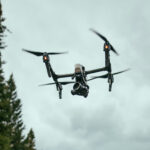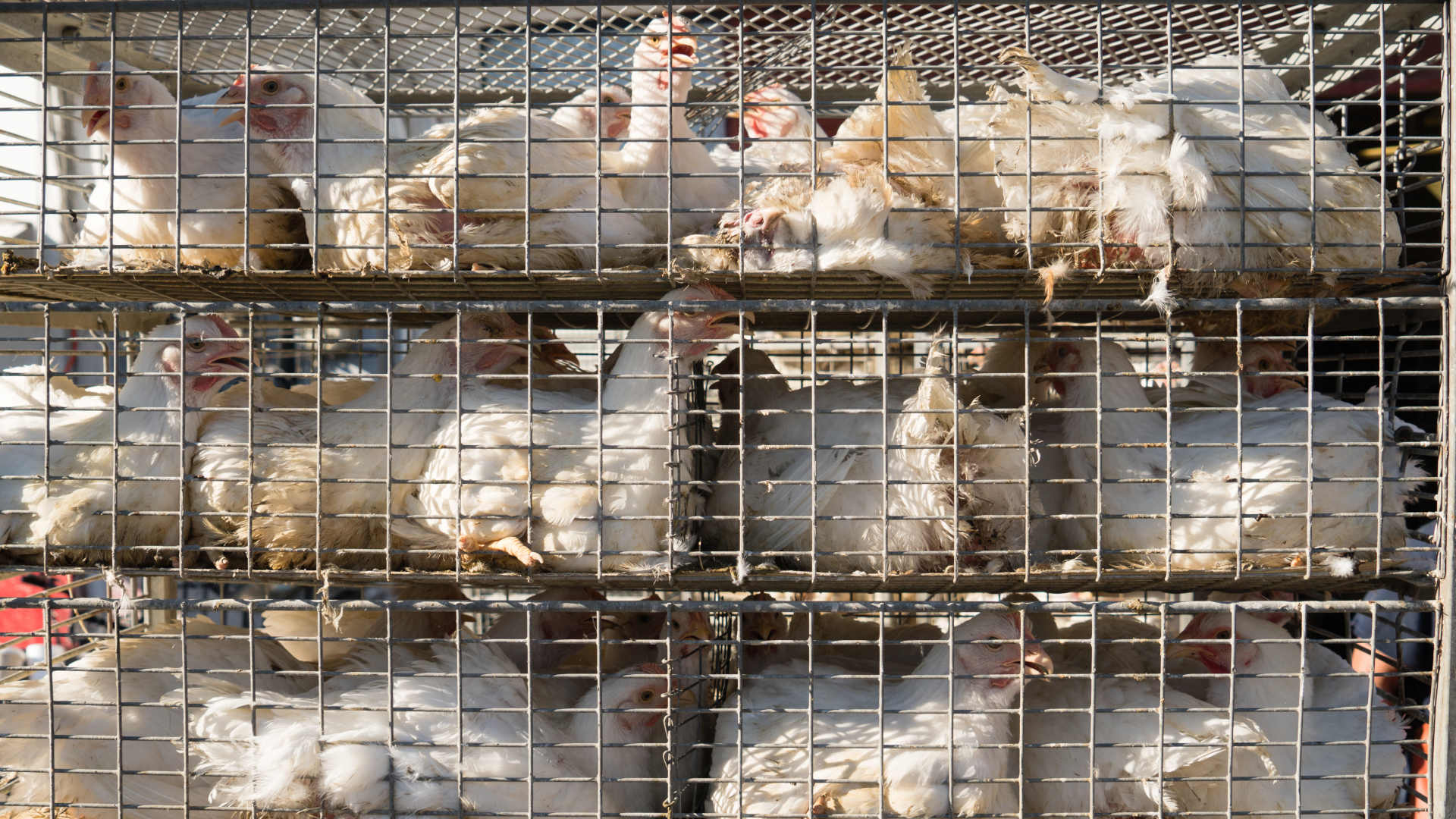Today’s factory farms are monuments to humanity’s unprecedented technological sophistication and our seemingly limitless capacity for cruelty.
Over the past half century, industrial farms have selectively bred animals to grow much faster and larger than their natural patterns, leading to health issues such as chronic pain. Meanwhile, these creatures are kept in harsh, crowded conditions and slaughtered inhumanely. The close confinement and unsanitary conditions on factory farms can breed zoonotic diseases and antibiotic-resistant bacteria.
What’s more, scientists tell us that eliminating animal products from our plates is one of the best things we can do as individuals to mitigate climate change and other environmental threats.
Amid this moral, environmental, and public health catastrophe, meat industry technologists are proposing precision livestock farming, or PLF, as a solution. PLF is the use of digital tools to continuously monitor livestock parameters, offering precise information about farmed animals in real-time.
PLF is a small but rapidly growing field. Although these tools have been around since the early 2000s, 65 percent of all literature on the matter was published in the past five years alone. Improvements in sensor technology and the computing power to interpret the sensors’ output are responsible for this. Artificial intelligence, or AI, in particular has given rise to many new PLF applications. Still, the reality of AI on farms, for now at least, is more mundane than what some may imagine: fewer robots, more surveillance cameras and buzzing sensors.
We are a group of university students, advocates, and scientists affiliated with the nonprofit Allied Scholars for Animal Protection. With calls to drastically reduce or eliminate meat, dairy, and egg consumption from many scientists and animal advocacy groups such as ours, the livestock industry is scrambling for ways to improve its public image.
The meat industry often uses exaggeration and greenwashing to assuage public concern. For example, “regenerative” or lower-carbon agricultural practices have received much hype, despite the fact that the most sustainable way to produce meat is to not produce it at all. PLF, touted for its supposed benefits to animal welfare, human health, and the environment, may be the meat industry’s next marketing ploy.
Conveniently for the industry, PLF tools achieve all of these changes by increasing production efficiency. For example, precision nutrition technologies purport to give animals optimized, individualized diets, thus reducing food waste.
Meanwhile, physical afflictions can be ameliorated via automated systems that adjust indoor conditions in response to signs of animal distress. Sickness can hurt farm output by slowing animals’ growth, so disease detection systems could improve efficiency by obviating the need for costly clinical testing.
PLF, touted for its supposed benefits to animal welfare, human health, and the environment, may be the meat industry’s next marketing ploy.
It’s important to note, though, that illness and misery do not seem to have been much of an impediment to production in the past. Respiratory illness is commonplace among farmed pigs, and bodily mutilations without pain relief are standard practice. It would be hard for factory farms to do worse on animal welfare than currently, but it is unlikely that incremental technological improvements will yield anything that could reasonably be described as humane.
We would be remiss not to mention emotion-monitoring systems, intended to capture animals’ affective states and enable adjustments to improve welfare conditions. Once commercial options become available, they would likely be marketed as husbandry practices that maximize animal “happiness.”
Advertisements that such tools herald a revolution in farm animal welfare miss the obvious point that no farm animal will ever be happy living their life in a tiny crate.
It seems more likely that industry insiders, who for decades have used bogus certifications labeling their products as “humane” to distract the public from their abuses, will use PLF as yet another means to delude the public about where their food comes from. There is no universal standard for assessing animal welfare, so the meat industry enjoys ample room for exaggeration.
Even the worst-performing plant-based diet has a lower impact on land and climate than the best diet that includes animal products.
It is plainly inaccurate to frame PLF as a net positive for farmed animals. PLF methods will only be implemented when they benefit the animal slaughter industry by increasing efficiency and bolstering production. In perpetuating the exploitation of animals, PLF fundamentally opposes their best interests.
Putting ethics aside, there are many reasons why the end of large-scale animal farming is crucial for the future of our planet. For example, global adoption of a plant-based diet could reduce agricultural land use by about 75 percent.
Instead of reforming animal agriculture, the world should move away from a food system based on animal products. Even the worst-performing plant-based diet has a lower impact on land and climate than the best diet that includes animal products. This shouldn’t be too surprising, given that animal agriculture currently accounts for 80 percent of global farmland but only produces 17 percent of calories.
As consumers, it’s easy to feel overwhelmed by the scale of global problems and our limited ability to make a difference. When it comes to what’s on our plates, though, the benefits of opting for plant-based diets are clear: better public health, a more livable climate, and better lives for our fellow creatures. Incremental tweaks to animal agriculture through PLF are misleading to consumers and do not get us to the world we need.
Shann Chongwattananukul, Benny Smith, and Dr. Faraz Harsini work with Allied Scholars for Animal Protection, a U.S.-based nonprofit founded by Dr. Harsini that focuses on animal advocacy and educates university students on sustainable food systems. Dr. Harsini is a biomedical and food system senior scientist who studies alternative protein technology.











